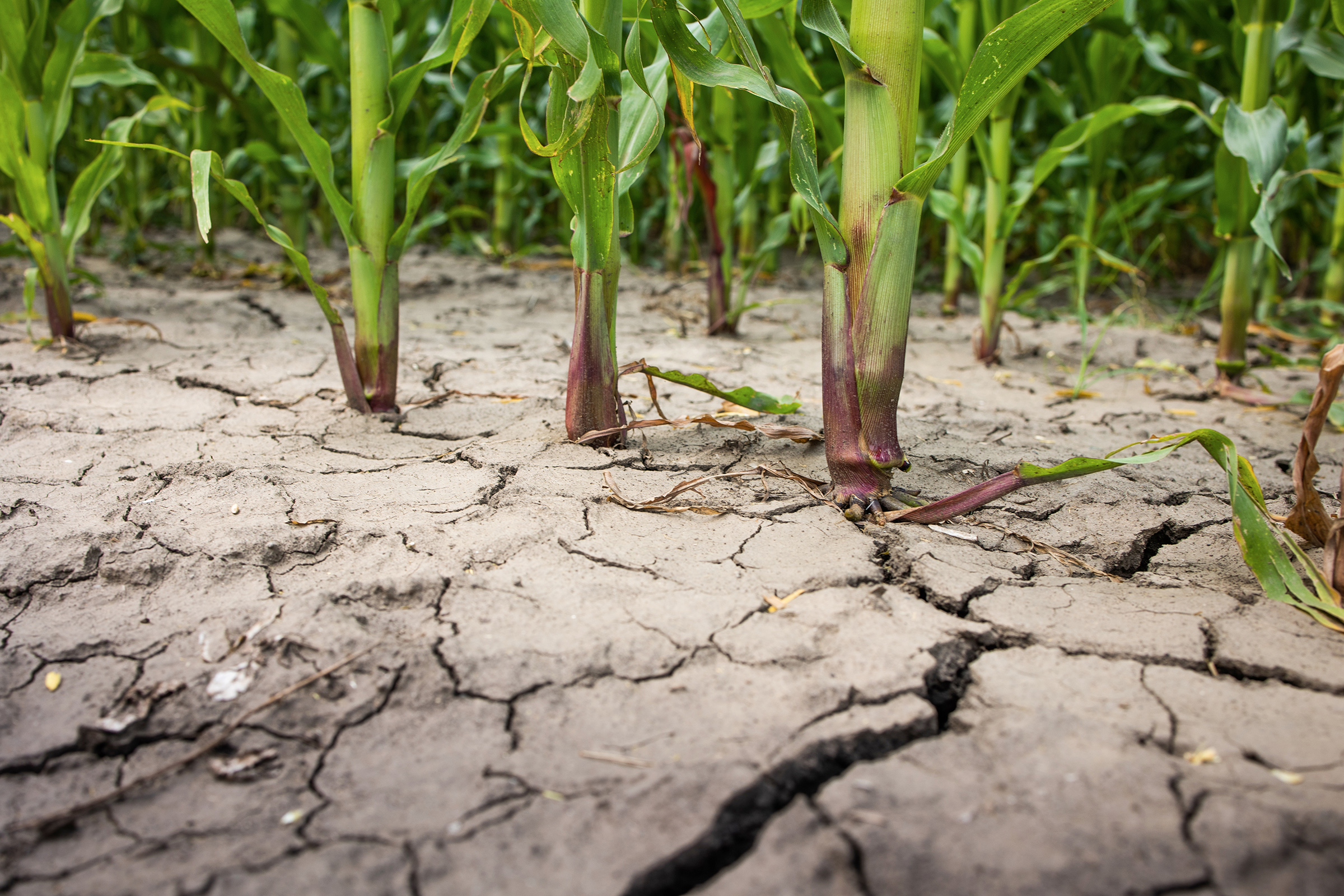Plant scientists recommend concerted approach to global food security

By Roger Meissen | Bond Life Sciences Center
Climate change presents increasing dangers to crops, and plant scientists across the world recognize rapid changes are needed to prepare for its threats.
That’s the message a coalition of plant and agriculture researchers detailed recently in Trends in Plant Science. Organized by Michigan State University’s Plant Resilience Institute (PRI), their paper spelled out how farmers, scientists and policymakers must work closely together to develop crops that can withstand increasingly harsh environmental conditions.
“As rising temperatures and extreme weather events threaten crop yields and nutritional quality, our ability to feed a growing population becomes more and more uncertain,” said Seung Y. “Sue” Rhee, MSU Research Foundation Professor and PRI Director. “The urgency is clear: without climate-adapted crops, we face risks of famine, mass migration and global conflict.”
Ron Mittler, a Bond Life Sciences Center researcher and plant biologist at the University of Missouri, joined 20 experts to make recommendations on how to best address these dangers. Mittler’s science brings together the effects of many types of environmental stresses — from salinity and flooding to heat and drought — on the overall health of plants.

“We’re running experiments subjecting plants to 5-6 different stresses in all possible combinations, and what we’re finding is you don’t really have to have a strong stress, but rather a combination of different low-level stresses to actually topple a plant,” Mittler said. “We call it the multifactorial stress principle where we see — even with low levels of stressors — the more complex the environmental stress combinations become, the more rapid the plant deterioration.”
While scientists have advanced understanding of how plants handle environmental stresses, turning that knowledge into solutions for farmers is difficult due to financial, logistical and technical hurdles, according to the authors. These challenges are even greater in developing countries, where limited resources hinder solutions tailored to local needs. Improving plant resilience isn’t just a scientific issue, the authors said — it’s also a societal one that requires public support, clear communication and favorable policies.
The researchers propose several practical recommendations to leverage plant resilience to fight climate change and secure food supplies globally. They call for closer collaboration between scientists and policymakers and to establish research partnerships between the U.S., Europe and developing countries. The group recommends adopting a “farm to lab to farm” approach, where real farming challenges inform research, and discoveries are quickly applied back in the field. They also stress the importance of engaging the public about new technologies and being open about their benefits and risks to build trust. Finally, they advocate for science-based, efficient regulations to expedite the adoption of innovations.
“It can take a long, long time — often more than 10 years — to get a plant that shows more resistance to climate change to market, and within those 10 years things could change so that this newly developed transgenic plant may not be good enough anymore,” Mittler said. “Climate change doesn’t care about rules, and things will deteriorate faster than we can respond to under the regulations that we have now, so we think things need to be rethought to make them much friendlier to development and distribution of solutions.”
The group of 21 co-authors from nine countries formed as an outcome of the First International Summit on Plant Resilience, spearheaded by the PRI earlier this year. The summit promoted global cooperation in plant resilience research efforts, bringing together preeminent plant scientists from diverse disciplines. Together, they created a roadmap to position plant resilience research as a cornerstone of global climate change solutions.
Rhee remains optimistic about the future of plant resilience.
“By prioritizing innovation and working as a global community, we can create agricultural systems that not only withstand climate change but also ensure a sustainable, healthy future for generations to come,” she said.
The publication “Resilient plants, sustainable future” published in Trends in Plant Science Dec. 5, 2024.
This story includes information provided by MSU’s Plant Resilience Institute. Read its press release here.

